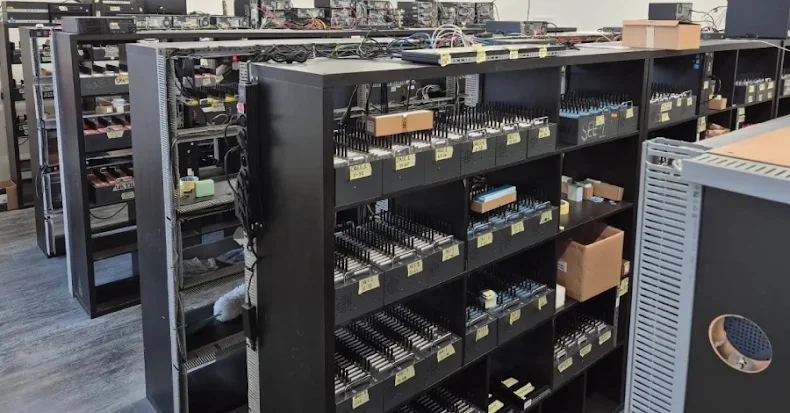Europol has announced a major crackdown on a sophisticated cybercrime-as-a-service (CaaS) operation that ran a large-scale SIM farm, providing tools for a wide range of criminal activities, from phishing scams to investment fraud.
The operation, called Operation SIMCARTEL, involved 26 coordinated raids, resulting in seven arrests and the seizure of 1,200 SIM box devices containing 40,000 active SIM cards. Among those detained, five were Latvian nationals. Authorities also took down five servers and seized two websites, gogetsms[.]com and apisim[.]com, which now display official seizure notices as of 10 October 2025. In addition, four luxury cars were confiscated, and investigators froze €431,000 in bank accounts and €266,000 in cryptocurrency linked to the suspects.
Law enforcement agencies from Austria, Estonia, Finland, and Latvia collaborated with Europol and Eurojust on the operation. Europol reported that this criminal network was linked to over 1,700 cyber fraud cases in Austria and 1,500 in Latvia, resulting in combined losses of around €4.5 million and €420,000 respectively.
Europol described the network as highly sophisticated, offering phone numbers from more than 80 countries. These numbers were used to create over 49 million online accounts, facilitating crimes such as phishing, smishing, financial fraud, extortion, migrant smuggling, and the distribution of child sexual abuse material (CSAM). Some scams even involved impersonating family members on WhatsApp to trick victims into transferring large sums of money.
The platform GoGetSMS advertised itself as providing “fast and secure temporary phone numbers” and offered users the ability to monetise SIM cards via its software. However, customer reviews on Trustpilot revealed issues, with some users complaining about receiving non-functional numbers and unresponsive support.
The Latvian State Police noted that the service enabled anonymous communication and payments, affecting roughly 3,200 people across multiple countries.

